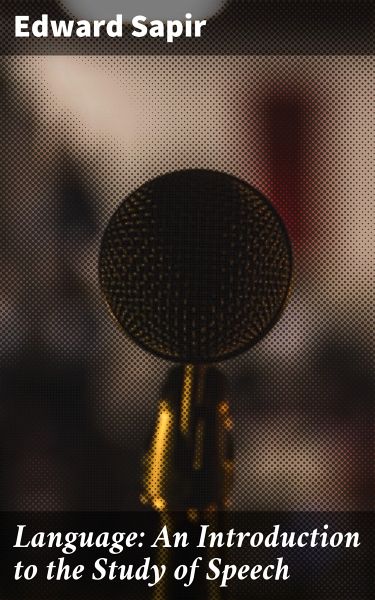
Language: An Introduction to the Study of Speech (eBook, ePUB)
Enriched edition. Uncovering the Crossroads of Language and Culture
Kommentar: Warner, Molly / Redaktion: Good Press

PAYBACK Punkte
0 °P sammeln!
In "Language: An Introduction to the Study of Speech," Edward Sapir offers an extensive examination of the intricacies of human language, exploring its structure, function, and social significance. Written in a clear and engaging style, this seminal work integrates linguistic theory with anthropological insights, situating language within the broader spectrum of human culture. Sapir's innovative approach is notable for its incorporation of both synchronic and diachronic perspectives, making it a cornerstone text for those interested in phonetics, semantics, and the sociolinguistic dimensions o...
In "Language: An Introduction to the Study of Speech," Edward Sapir offers an extensive examination of the intricacies of human language, exploring its structure, function, and social significance. Written in a clear and engaging style, this seminal work integrates linguistic theory with anthropological insights, situating language within the broader spectrum of human culture. Sapir's innovative approach is notable for its incorporation of both synchronic and diachronic perspectives, making it a cornerstone text for those interested in phonetics, semantics, and the sociolinguistic dimensions of speech. Edward Sapir (1884-1939) was a pioneering American linguist and anthropologist whose diverse academic background influenced his fascination with the complexities of language. His exposure to Native American languages and cultures provided him with unique insights that challenged prevailing linguistic theories of his time. Sapir's interdisciplinary approach, drawing from psychology and sociology, has left an enduring impact on modern linguistics and laid the foundations for later developments in the field, including structuralism and cultural anthropology. For anyone eager to delve into the fundamental nature of language and its role in shaping human experience, Sapir's "Language" serves not only as an essential academic resource but also as an insightful exploration of our communicative instincts. This book is an indispensable guide for students, linguists, and general readers alike, who seek to uncover the profound relationship between language and society. In this enriched edition, we have carefully created added value for your reading experience: - A succinct Introduction situates the work's timeless appeal and themes. - The Synopsis outlines the central plot, highlighting key developments without spoiling critical twists. - A detailed Historical Context immerses you in the era's events and influences that shaped the writing. - An Author Biography reveals milestones in the author's life, illuminating the personal insights behind the text. - A thorough Analysis dissects symbols, motifs, and character arcs to unearth underlying meanings. - Reflection questions prompt you to engage personally with the work's messages, connecting them to modern life. - Hand-picked Memorable Quotes shine a spotlight on moments of literary brilliance. - Interactive footnotes clarify unusual references, historical allusions, and archaic phrases for an effortless, more informed read.
Dieser Download kann aus rechtlichen Gründen nur mit Rechnungsadresse in A, B, BG, CY, CZ, D, DK, EW, E, FIN, F, GR, H, IRL, I, LT, L, LR, M, NL, PL, P, R, S, SLO, SK ausgeliefert werden.













